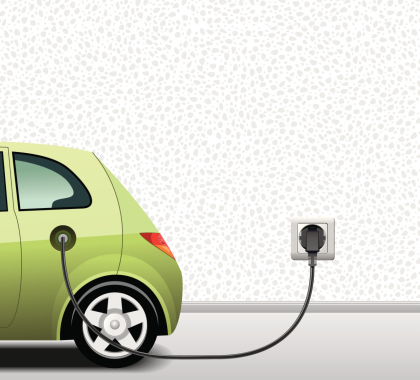North Dakotans who purchase electric vehicles, plug-in hybrids, or electric motorcycles will soon pay standardized fees to maintain the state’s highways, roads, and bridges, under a new law signed by Gov. Doug Burgum.
North Dakota joined 20 other states with EV fees, on April 11.
Senate Bill 2061 imposes annual fees of $120 on electric vehicles (EVs), $50 for plug-in hybrids, and $20 for electric motorcycles, to ensure owners of these vehicles contribute to highway and road maintenance.
Road construction and maintenance are largely funded by gasoline taxes. Because EVs do not use gasoline, their owners avoid such taxes though EV use still puts wear and tear on roads.
‘Good Start for North Dakota’
With fewer than 150 EVs, less than 4,000 hybrids, and even fewer plug-in hybrids registered in the state, the legislature showed laudable foresight, says Bette Grande, a former North Dakota state legislator who is now a research fellow at The Heartland Institute, which publishes Environment & Climate News (ECN).
“S.B. 2061 is a really good start for North Dakota to be proactive, given that electric vehicle infrastructure is not yet a pressing issue,” said Grande.
“We need to look at how electric vehicles would be charged and used in our vast state and develop a system ensuring EVs contribute to highway maintenance,” said Grande.
‘Paying Their Fair Share’
The law is meant to ensure everyone using North Dakota’s roads contributes to their upkeep, says state Sen. Curt Kreun (R-Grand Forks), who cosponsored the legislation.
“Our concern was down the road there will likely be many more EVs using our highways, and we wanted to ensure they too are paying their fair share to maintain the roads they are using,” Kreun told ECN. “Eventually, everyone may move to mileage fees for all vehicles, but that might require federal action. In the meantime, this is the most equal playing field we could get.”
A user fee based on miles traveled would improve states’ approach to paying for roads and bridges, says Randal O’Toole, a senior fellow with the Cato Institute.
“The real purpose of a user fee is to send signals to both users and producers about the value of the resources they are using,” said O’Toole. “Gas taxes don’t do that very well, and a flat fee does even worse, which is why I support mileage-based user fees.”
Duggan Flanakin ([email protected]) writes from Austin, Texas.
Official Connection
State Sen. Curt Kreun (R-Grand Forks): https://www.legis.nd.gov/assembly/65-2017/members/senate/senator-curt-kreun; [email protected]




